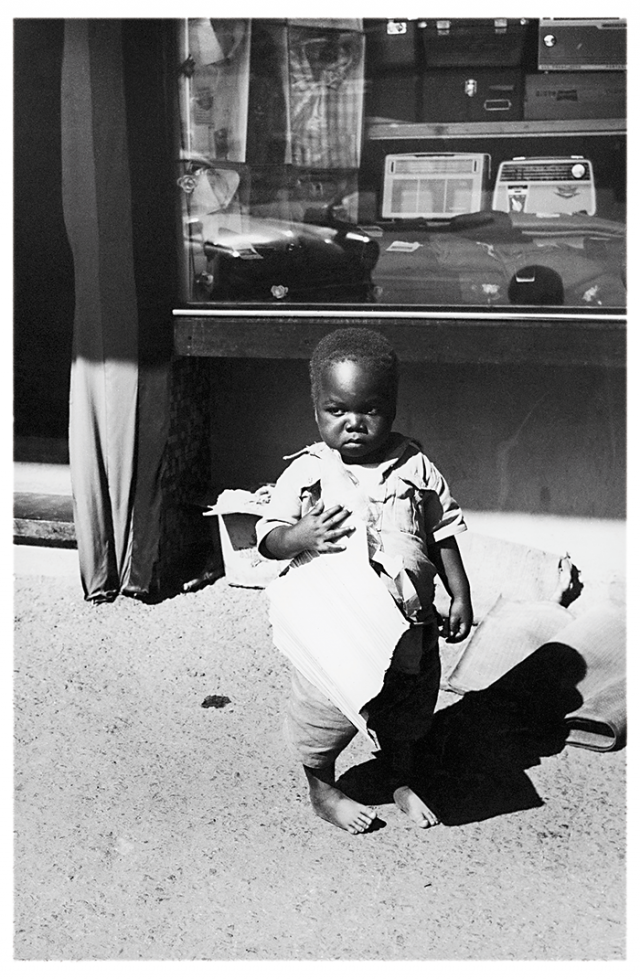In the winter of 2003, I made a plan with Ryszard Kapuscinski to begin a Paris Review interview. In the intervening years he and I kept trying to meet over a tape recorder in Warsaw, but the time was never right. In January, when I learned of his death, I discovered that I had jotted down a few notes from our only meeting, one night in a borrowed apartment in Greenwich Village. Here is what I salvaged:
Kapuscinski. First night. The room is uncluttered. A stopover. Like so many of the places he has inhabited in his life. He says he is working on several books—his travels with Herodotus; a history of Lvov, the Polish town where he grew up; and a collection of aphorisms. On the desk, a large notebook lies open to page forty. It’s blank. Two ballpoints and a red pencil that he uses to underline pages in Polish, are neatly placed on the desk along with George Seferis’s On Greek Style. That’s all. In the shelves are an assortment of books given to him—one on Greek travel, some Hemingway stories. Classical music plays on the radio. He perches on the edge of an ottoman, talking, gesticulating, and I sit on the couch barely a foot away from him. He has tiny feet. Strong arms. A narrow body with a small paunch like a little balloon. Two hours pass and we don’t move. Then he is on his feet, and a second later seated on the couch—half a foot away from me now. He goes on talking till midnight—no tea, no food, not even a glass of water. I’m going to faint. He’s so close I can see how parched his mouth is. His busy mind doesn’t care.
He leaps to Africa, to a few words spoken to him in the southern Sudan nearly a half century ago. I’d got to Juba with a Czech journalist, he says, and we had four hundred more kilometers to Congo, our destination. We had a permission to travel there and this British colonial servant took that paper from us. I begged. Please I need that permission to go to the border. He looked at me and said, “I am the border.”
And it was true, he says: after that man there was nothing. Until we got to the Congo and there I can see the image so clearly, a man and a woman completely naked.
I ask, What was your greatest professional failure?
He looks at me puzzled, embarrassed, and says, My life.
I want to believe he means his life as opposed to his work. This is a solitary life, he tells me. Yes, I have a wife, children, but always I am alone. Loneliness is our constant companion, isn’t it? His eyes brighten warmly. Isn’t it?
But it turns out that is not what he meant by failure. He actually meant his work. I’m never satisfied, he says. When I finish a book it’s not the book I meant or wanted to write.
Well, give me an example, what book would you have liked to write differently or how?
If I knew I would have written it. It’s just a feeling.
He recalls coming of age as a reporter under totalitarianism. He describes the changes that happen in the mind of the writer, the reporter, the newscaster, how the internal censor develops and introduces a new way of thinking that seeps into his reports. It happened with us, he says. It wasn’t overnight in 1946, it was a slow process. And the same could happen here. You’ll see, he says.
There’s a blank space in my notes as if I was trying to represent a memory lapse. Then comes one of the aphorisms he offered that night without context: The stupid man says all he knows. The clever man knows all he says.
I’m dying for a glass of water. I can’t swallow anymore. I’m beginning to see double. He talks of vodka. I’d even take that.
But no—the vodka he’s talking about is another history lesson. In the Soviet imperium, he says, vodka had its own moral code. You had to show up at a friend’s with a bottle. And once the bottle was opened, you had to finish it. And then, he says, one drank to prove one wasn’t a KGB agent.
His mind falls back to childhood, the war days. We were always moving, always refugees, he says. We were so hungry we would ask the Russian soldiers for food but they were so hungry too. So we’d share their tobacco, to stave off the aching hunger.
He bounces up as if an alarm has gone off. He has been talking for six hours. It’s midnight. Oh, I’m so sorry, he says. I haven’t offered you anything! You must be starving. I nod. He shuffles quickly to the small kitchen, opens a bottle of cooking oil and dumps half of it into the frying pan. Then he cracks four eggs into the boiling goop. He toasts a few pieces of Wonder bread, spatulas the dripping eggs onto the toast. I watch the oil seep out beneath the toast. He pours some tea. And we eat and drink.
I ask him about his notebook, open to the blank page. I write two hundred words a day, he says. I’m very inefficient. I don’t write the sentence until it’s in my head. It’s all in here, he says, tapping his temple. That’s my computer. I write like this, he says, waving an imaginary pen in the air. It more closely reflects the writing process.
Well, he says, until you can show me a better book written by computer I stay with my pen.
—Elizabeth Rubin




